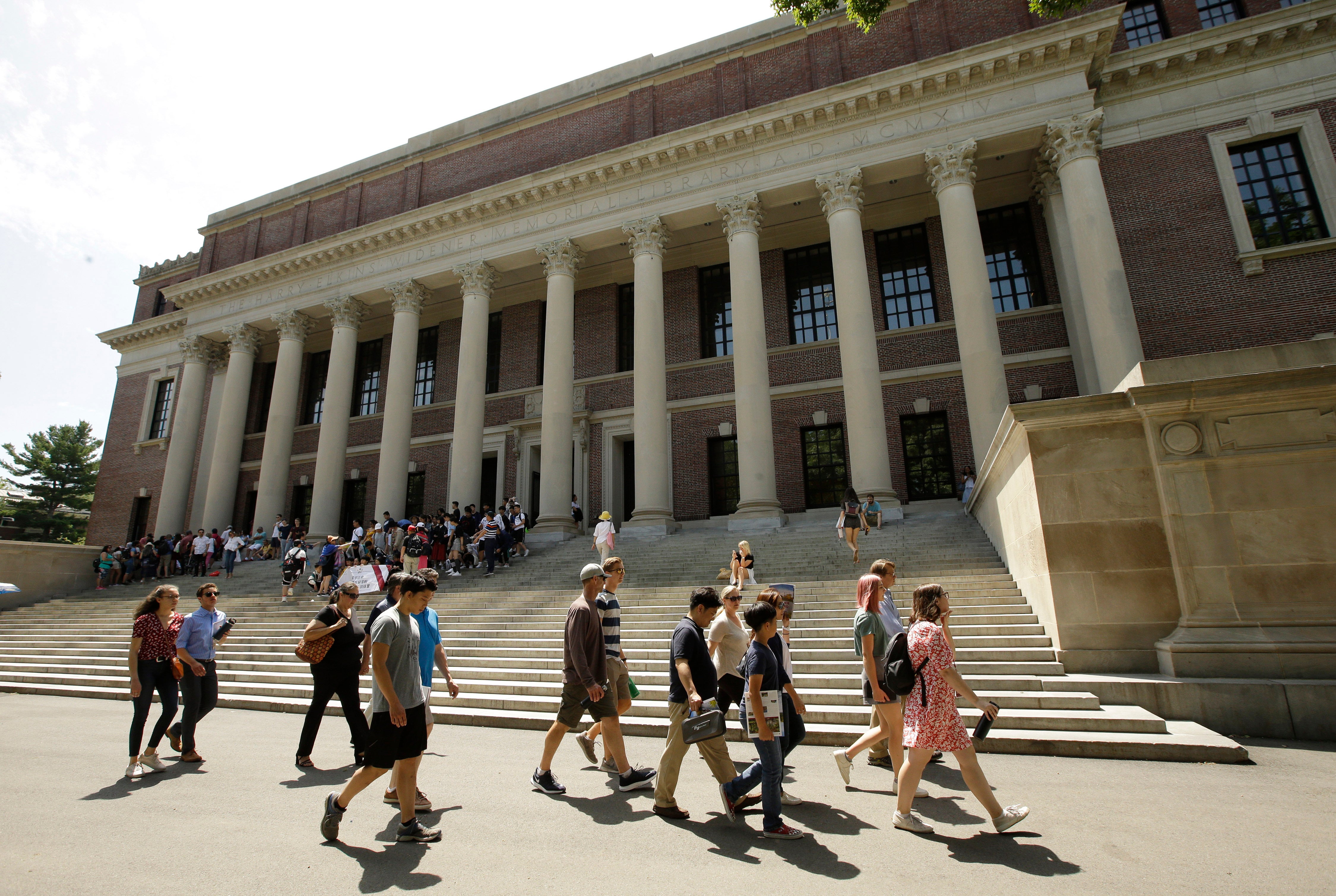Harvard University on Thursday banned roughly 25 faculty members from entering the school’s main library for two weeks, after the scholars staged a silent “study-in” in protest.
The demonstration, which took place last week in the Widener Library, was in protest at the school’s decision earlier this month to temporarily ban pro-Palestinian activists who staged a similar demonstration in the library in September.
During the faculty demonstration, the professors sat silently with paper signs bearing slogans like “embrace diverse perspectives,” quoting from the library’s statement of values.
I've been barred from the Harvard library for displaying this message while I silently read Henry David Thoreau. pic.twitter.com/Ck88fZfLIB
— Ryan Enos (@RyanDEnos) October 25, 2024
“I’ve been barred from the Harvard library for displaying this message while I silently read Henry David Thoreau,” Professor Ryan Enos wrote on X on Friday of the ban, along with an image of the quote, “reasoned dissent plays a particularly vital part in [our] existence.”
In a statement to the Harvard Crimson university newspaper, Martha Whitehead, head of the Harvard Library system, said the school’s libraries are “not intended to be used as a venue for a group action, quiet or otherwise, to capture people’s attention” and that “seeking attention is in itself disruptive.”
“In the study-ins in our spaces, we heard from students who saw them publicized and chose not to come to the library,” she added. “During the events, large numbers of people filed in at once, and several moved around the room taking photos or filming.”
Suspending professors from the library for protest appears to be “unprecedented” in university history, according to the Crimson.

AsThe Independent has reported, U.S. college campuses have been hotbeds of protest against the Israel-Gaza war.
Following a year of protest at U.S. universities, where demonstrations ranged from peaceful encampments to occupying buildings, universities implemented sweeping new restrictions on campus activism, ranging from encampment bans, to pre-approval requirements, to rules forbidding facemasks.
From the very beginning of the war, protests at Harvard, one of the country’s best universities, have been part of the national conversation.
On 7 October, the same day Hamas launched a surprise cross-border attack on Israel, a group of student organisations released a statement on social media arguing that Israel’s “apartheid regime” created the conditions leading to and was “entirely responsible” for the war.
The statement prompted an outcry from prominent Harvard alums like Senator Ted Cruz, as well as attempts from outside the university to punish students for their views.
Billionaire hedge fund manager Bill Ackman wrote on social media that fellow executives had been asking him to release the names of the individual students who signed onto the original letter “so as to insure that none of us inadvertently hire any of their members.”
And trucks soon appeared on campus circling the university and displaying photos of Harvard students and organisations allegedly linked to the original statement.
In January, Dr. Claudine Gay resigned as Harvard’s president, following a bruising congressional hearing on campus protest and sustained public criticism that she hadn’t done enough to fight antisemitism.







